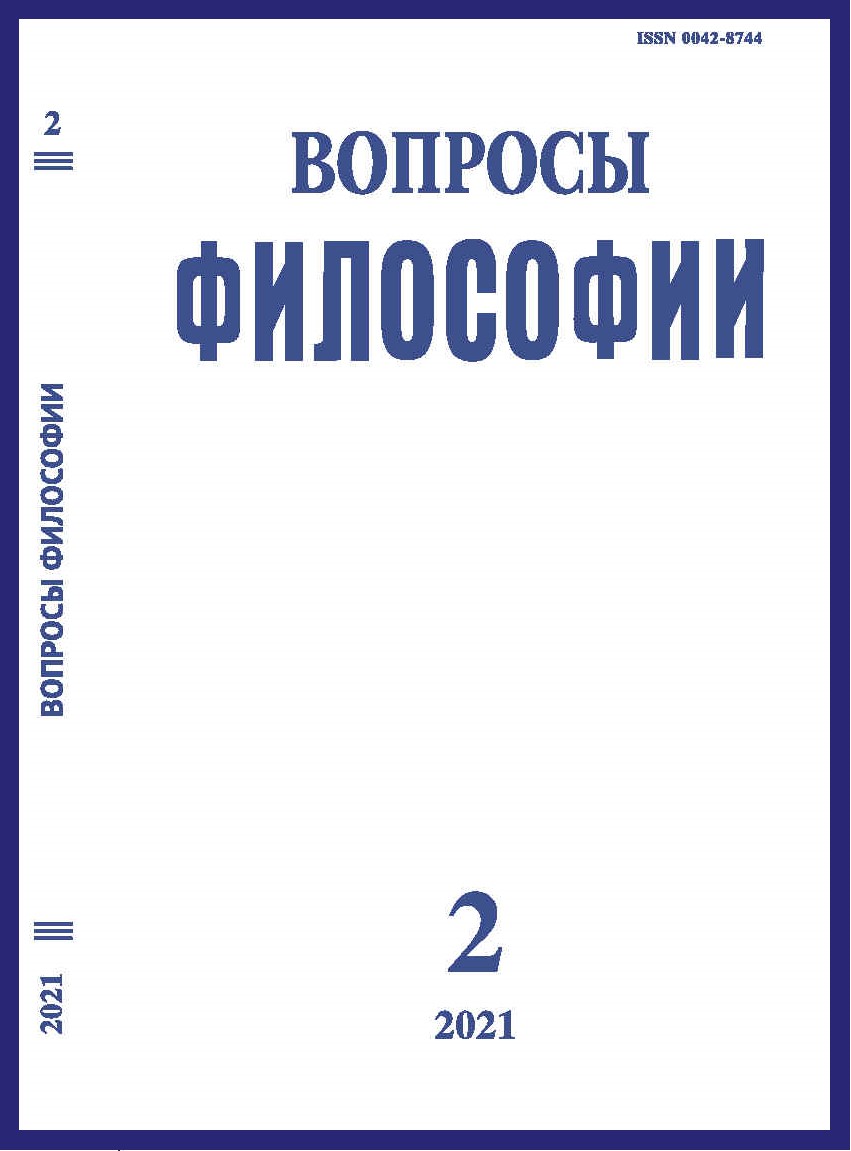The Concept of Mind in Contemporary Philosophy
DOI:
https://doi.org/10.21146/0042-8744-2021-2-100-106Keywords:
The concept of mind, problems of consciousness, cognitive science, continental philosophy, analytical philosophy.Abstract
This article studies the concept of mind, problems of consciousness, and its solutions through opportunities and limitations of the continental and analytical philosophy in contemporary science and humanities. This research shows that, on the one hand, analytical and scientific perspective shows mind and consciousness as a methodological concrete process that could be divided into separate components. Moreover, each component has a specific function and localization. As a result, this perspective allows to computer simulation and various applications. However, a variety of definitions leads to certain confusion, as well as the inability to relate the individual experience to these concrete theoretical models. On the other hand, continental philosophy and humanities provide a large amount of material about the individual mind and consciousness. However, this complete individual picture complicates the generalizations and also forbids the search for universal laws and its application. As a result, both opportunities and limitations of contemporary philosophical traditions allow the necessary of the theoretical synthesis. Moreover, studying the concept of mind through problems of mind and consciousness shows that isolated solutions could be ineffective. However, the important question here is how such a synthesis can be carried out, since modern attempts, for example, neurophenomenology, meets methodological limitations studied in this article.

